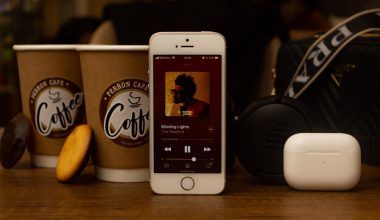As a musician, sharing your art with the world can be both exciting and nerve-wracking. You’ve poured your heart into creating your music, and now it’s time to let others hear it. But how do you submit your song effectively? Where should you start? This guide will walk you through everything you need to know about submitting your music, gaining exposure, and growing your career.
What Does It Mean to Submit a Song?
Submitting a song simply means sharing your music with a platform, label, or audience for a specific purpose. This could be to get featured on playlists, earn radio airplay, land a sync deal, or pitch to record labels. Each submission type comes with its own set of strategies, but the goal is always the same: to get your music heard by the right people.
When you submit your song, think of it as introducing your creative work to a wider audience. It’s your chance to showcase your talent and connect with people who can help amplify your music. The good news is that the process has never been easier, thanks to digital platforms and tools.
Why Submitting Your Song is Crucial for Growth
Submitting your song isn’t just about seeking validation—it’s about opening doors to opportunities. Many independent artists shy away from submissions because they fear rejection, but the truth is, every successful musician started somewhere. Submitting your music is one of the best ways to:
- Build connections within the industry
- Reach new audiences
- Gain feedback to improve your craft
- Earn potential revenue
If you don’t put your music out there, you may miss out on incredible chances to grow. With so many platforms available, there’s a space for every type of artist.
Where Can You Submit Your Song?
There are countless options when it comes to submitting your song. Whether you’re aiming for playlists or professional critiques, here are some popular choices:
1. Streaming Platforms
Submit your song to streaming services like Spotify, Apple Music, and Tidal. These platforms often allow artists to pitch their tracks for playlist consideration.
2. Radio Stations
Local, regional, or online radio stations are great for getting your music heard. Many stations have submission portals or accept tracks directly from artists.
3. Music Blogs and Magazines
Music blogs love to feature emerging talent. Submit your song to blogs that align with your genre and audience.
4. Record Labels and A&R Representatives
If you’re seeking a record deal, submit your music to labels that fit your style. Tailor your pitch to each label’s preferences.
5. Sync Licensing Companies
If you want your music featured in films, TV shows, or advertisements, sync licensing is a fantastic option. Companies like Musicbed and Songtradr specialize in connecting artists with media opportunities.
6. Social Media Platforms
While not a traditional submission route, posting your song on platforms like TikTok and Instagram can lead to viral exposure.
How to Prepare Before Submitting Your Song
Before hitting “submit,” make sure your song and presentation are ready. First impressions matter, so take the time to polish everything. Here’s what you should do:
1. Fine-Tune Your Song
Ensure your track is professionally mixed and mastered. A high-quality recording is non-negotiable when submitting your song.
2. Create Stunning Cover Art
Your cover art is the first thing people see. Make sure it’s eye-catching and represents your music well.
3. Write a Captivating Bio
Your artist bio should tell your story. Share who you are, what inspires your music, and what makes you unique.
4. Have a Press Kit Ready
A press kit typically includes your bio, high-quality photos, links to your music, and any notable achievements. It’s a valuable tool for submissions.
5. Research Your Audience
Before submitting, know who you’re targeting. A submission to a hip-hop blog might not work if your song is a country ballad.
Step-by-Step Process to Submit Your Song
Let’s break it down into simple steps:
Step 1: Research the Platform or Opportunity
Find out exactly what the submission guidelines are. Each platform or company will have different requirements, so follow them closely.
Step 2: Craft a Personalized Pitch
Avoid sending generic messages. Write a tailored pitch that explains why your song fits their platform. Mention any previous successes or relevant details.
Step 3: Submit Your Song in the Right Format
Some platforms prefer MP3s, while others may request streaming links. Make sure your file is labeled correctly and professionally.
Step 4: Follow Up (But Don’t Overdo It)
If you haven’t heard back in a couple of weeks, it’s okay to send a polite follow-up email. Persistence can pay off, but avoid being pushy.
Common Mistakes to Avoid When Submitting Your Song
Submitting your song the wrong way can hurt your chances. Here are some common mistakes to watch out for:
- Submitting unfinished or poorly mixed tracks
- Ignoring submission guidelines
- Writing impersonal or overly long pitches
- Spamming multiple platforms without doing research
- Failing to include contact information
How to Handle Rejection and Stay Motivated
Rejection is part of the process. Even top artists face it. When your submission is turned down, view it as a learning opportunity. Ask for feedback if possible, and use it to improve. Remember, every “no” brings you closer to a “yes.”
The Power of Networking in the Submission Process
Building relationships within the music industry can make a huge difference. Attend music events, connect with other artists, and engage with influencers in your niche. A strong network can open doors to opportunities that might not be available through standard submissions.
Using Technology to Simplify Submissions
Tools like SubmitHub and Groover streamline the submission process. These platforms allow you to send your music directly to blogs, labels, and curators, often with guaranteed feedback. They save time and increase your chances of being heard.
Final Thoughts: Submit Your Song with Confidence
Submitting your song is a journey, not a one-time task. The more you put yourself out there, the more opportunities you create. Keep refining your craft, building connections, and learning from every experience. Most importantly, believe in your music—it’s the foundation of everything you do.
Your song has the power to resonate with people and change lives. So take that leap, hit “submit,” and share your art with the world.
For further reading, explore these related articles:
- Friends by Marshmello: A Song That Tells It All
- Rihanna’s Biggest Hits: A Celebration of Her Music Journey
For additional resources on music marketing and distribution, visit DMT Records Pvt. Ltd..






